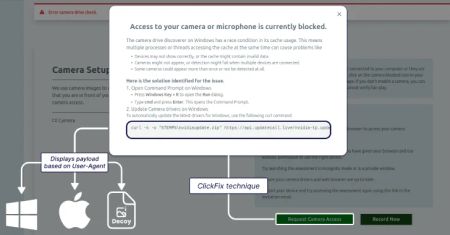CWE-263 - Password Aging with Long Expiration
- Abstraction:Base
- Structure:Simple
- Status:Draft
- Release Date:2006-07-19
- Latest Modification Date:2023-06-29
Weakness Name
Password Aging with Long Expiration
Description
The product supports password aging, but the expiration period is too long.
Password aging (or password rotation) is a policy that forces users to change their passwords after a defined time period passes, such as every 30 or 90 days. A long expiration provides more time for attackers to conduct password cracking before users are forced to change to a new password. Note that while password aging was once considered an important security feature, it has since fallen out of favor by many, because it is not as effective against modern threats compared to other mechanisms such as slow hashes. In addition, forcing frequent changes can unintentionally encourage users to select less-secure passwords. However, password aging is still in use due to factors such as compliance requirements, e.g., Payment Card Industry Data Security Standard (PCI DSS).
Common Consequences
Scope: Access Control
Impact: Gain Privileges or Assume Identity
Notes: As passwords age, the probability that they are compromised grows.
Related Weaknesses
CISA warns of Fast Flux DNS evasion used by cybercrime gangs
Ivanti VPN customers targeted via unrecognized RCE vulnerability (CVE-2025-22457)
Ivanti patches Connect Secure zero-day exploited since mid-March
Microsoft Warns of Tax-Themed Email Attacks Using PDFs and QR Codes to Deliver Malware
Texas State Bar warns of data breach after INC ransomware claims attack
Recent GitHub supply chain attack traced to leaked SpotBugs token
Attackers are leveraging Cisco Smart Licensing Utility static admin credentials (CVE-2024-20439)
Lazarus Group Targets Job Seekers With ClickFix Tactic to Deploy GolangGhost Malware
CVE-2025-22224 VMware ESXi and Workstation TOCTOU Race Condition Vulnerability
CVE-2025-2783 Google Chromium Mojo Sandbox Escape Vulnerability
CVE-2020-29574 CyberoamOS (CROS) SQL Injection Vulnerability
CVE-2022-43769 Hitachi Vantara Pentaho BA Server Special Element Injection Vulnerability
CVE-2022-43939 Hitachi Vantara Pentaho BA Server Authorization Bypass Vulnerability
CVE-2018-8639 Microsoft Windows Win32k Improper Resource Shutdown or Release Vulnerability
CVE-2024-40890 Zyxel DSL CPE OS Command Injection Vulnerability
CVE-2024-49035 Microsoft Partner Center Improper Access Control Vulnerability
CVE-2017-0148 Microsoft SMBv1 Server Remote Code Execution Vulnerability
InformationalInformation Disclosure - Suspicious Comments
InformationalRe-examine Cache-control Directives










